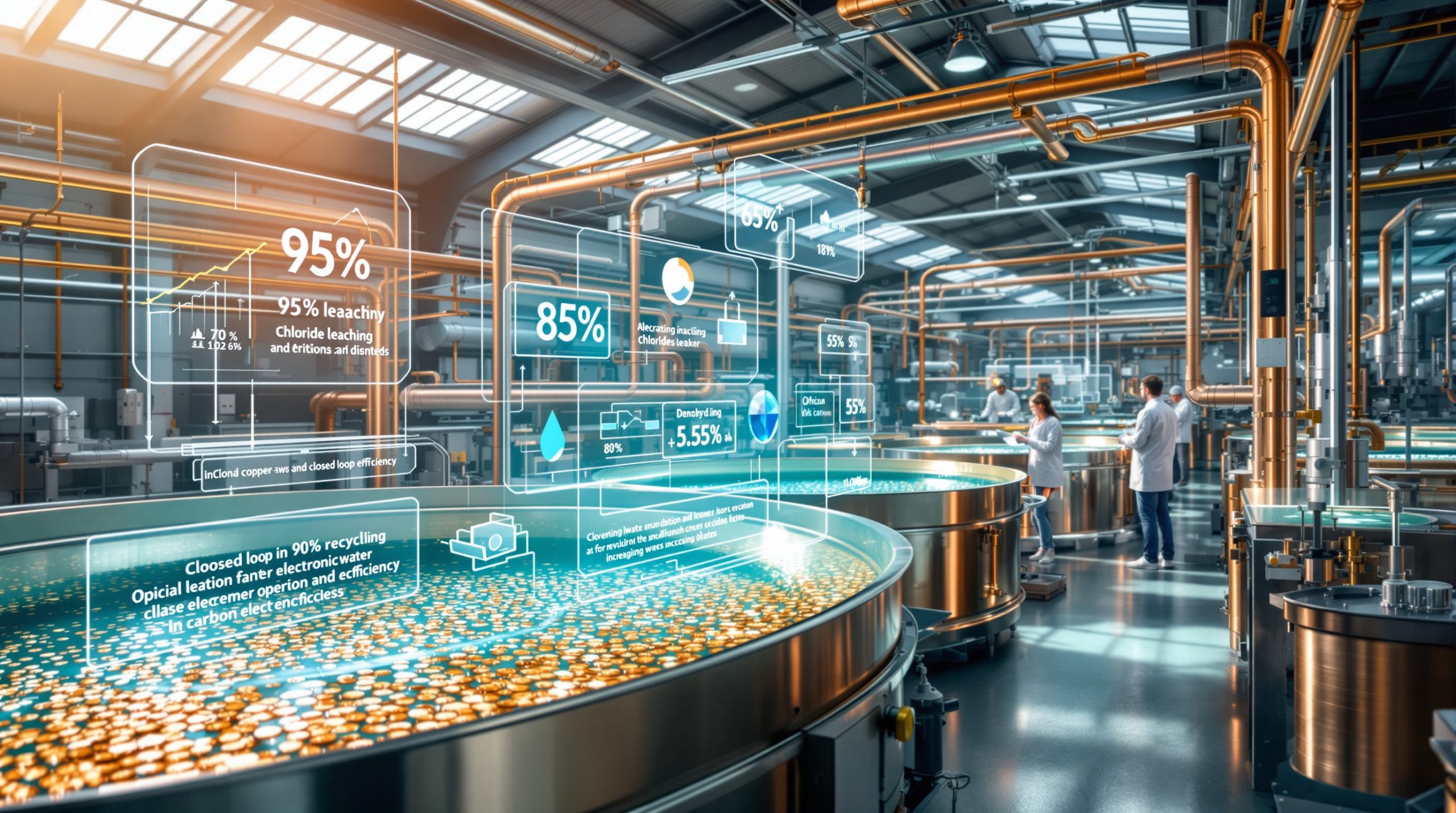What is the RIGI Program for Lithium in Catamarca?
Argentina's Regime for Incentives to Large Investments (RIGI) represents a cornerstone of the nation's strategy to attract significant capital into strategic sectors, with lithium mining emerging as a priority focus. The program offers substantial benefits to qualifying companies willing to make major investments in Argentina's rich lithium resources, particularly in the northern province of Catamarca.
Understanding Argentina's RIGI Framework for Mining Investment
The RIGI program establishes a comprehensive framework designed to attract substantial foreign direct investment to Argentina's mining sector. Requiring a minimum investment threshold of USD 100 million for qualification, the program targets projects that can demonstrate clear export capabilities and job creation potential.
As Luis Caputo, Minister of Economy, explained: "RIGI targets projects that strengthen Argentina's export capacity and generate high-quality employment." This strategic focus aims to transform Argentina's position in the global lithium market.
The program's selective nature ensures only projects meeting strict criteria receive approval, creating a competitive landscape for mining investment insights in Argentina's lithium-rich regions.
How RIGI Works for Lithium Projects
Under the RIGI framework, approved lithium projects receive substantial benefits that significantly improve their economic viability:
- 30-year fiscal stability guaranteeing protection from tax increases
- Import duty exemptions on capital equipment and technology
- Accelerated VAT return improving cash flow during development
- Corporate tax rate caps (fixed at 25%)
- Streamlined permitting processes reducing bureaucratic hurdles
These incentives come with reciprocal obligations. Companies must meet specified investment timelines, demonstrate environmental stewardship, and deliver on export and employment commitments to maintain their RIGI status.
"The RIGI framework provides the regulatory certainty and fiscal stability that major mining projects require for long-term planning and investment security," notes Argentina's Mining Secretary.
Unlike Chile's more restrictive lithium royalty model, which can impose up to 40% in sliding-scale royalties during price spikes, Argentina's RIGI offers more predictable costs through its fiscal stability provisions.
Galan Lithium's Approved RIGI Project in Catamarca
The recent approval of Galan Lithium's Hombre Muerto West (HMW) project marks a significant milestone in Argentina's lithium sector development. This Australian-backed venture has become the first lithium-specific project to secure RIGI approval, highlighting its strategic importance to Argentina's economic objectives.
Project Overview and Investment Details
Galan Lithium's HMW project, located in Catamarca province, secured RIGI approval based on its USD 217 million investment commitment. The project sits on the western side of the Hombre Muerto salt flat, an area renowned for its high-quality lithium brine resources with low impurity levels.
Juan Pablo Vargas de la Vega, Galan's Director, emphasized the strategic importance of this approval: "RIGI strengthens our capital-raising capacity to maximize HMW's development and ensures we can proceed with confidence despite global lithium market downturn."
The project's economics are compelling:
- Initial capital expenditure: USD 217 million
- Projected operating costs: Among the lowest quartile globally
- Expected IRR (Internal Rate of Return): >25% based on current lithium pricing
- Annual export revenue (at full capacity): USD 180 million starting 2029
Production Targets and Timeline
Galan has established a phased development approach for the HMW project:
- Initial production: 4,000 tonnes of lithium carbonate equivalent (LCE) annually
- Near-term expansion: 5,400 tonnes LCE (previously targeted for mid-2025, now contingent on market recovery)
- Full capacity target: 20,850 tonnes LCE annually by 2027
This measured scale-up strategy allows the company to manage capital deployment efficiently while responding to market dynamics in the volatile lithium sector.
Current Development Status
Galan's project has already achieved significant milestones before receiving RIGI approval:
- 6,000 tonnes of LCE accumulated in pilot evaporation ponds during the testing phase
- Engineering and design work completed for primary processing facilities
- Solar-powered evaporation technology demonstrated 40% operational cost reduction in pilot testing
- Environmental permits secured for full-scale development
The RIGI approval now enables Galan to proceed with construction of full-scale production facilities, with commissioning targeted for late 2026.
Strategic Significance of RIGI Approvals in Argentina's Lithium Sector
The Argentine government's approach to RIGI approvals reveals a carefully calibrated strategy that balances economic development with geopolitical considerations. The decisions around which projects receive approval appear to reflect broader national interests beyond simple investment metrics.
Government Selection Process
RIGI approvals demonstrate clear selectivity in implementation. Galan's project represents the 6th RIGI-approved project overall and the 1st lithium-specific approval under the program. This selective approach is notable given that only 6 of 14 RIGI applicants had been approved as of July 2025.
The evaluation process considers multiple factors:
- Export potential and foreign currency generation
- Regional development impact
- Technology transfer benefits
- Strategic alignment with national economic policy
- Origin of investment capital
This multifaceted assessment ensures approved projects align with Argentina's broader economic and strategic objectives rather than simply maximizing investment volume.
Geopolitical Considerations in RIGI Approvals
Perhaps the most revealing aspect of Argentina's RIGI strategy is evident in the contrasting decisions regarding Galan's Australian-backed project and Ganfeng Lithium's Chinese-backed initiative.
The approval of Galan's comparatively smaller investment alongside the rejection of Ganfeng's substantially larger project suggests factors beyond pure economics are influencing decisions. This pattern aligns with recent diplomatic signals from Western nations.
U.S. Ambassador-designate Peter Lamelas notably stated: "We'll work to keep authoritarian states like China out of critical sectors." This statement, made just days before the RIGI decisions were announced, suggests possible coordination between Argentina and Western partners regarding strategic resource development.
Industry analysts note this may reflect Argentina's repositioning in the global critical minerals landscape, potentially aligning more closely with Western supply chain security interests.
Rejected RIGI Application: Ganfeng Lithium in Salta
The rejection of Ganfeng Lithium's RIGI application provides a striking counterpoint to Galan's approval, highlighting potential non-economic factors in Argentina's decision-making process.
Project Background
Ganfeng Lithium, a major Chinese producer, sought RIGI approval for expansion of its already substantial Mariana project in Salta province. The company had already demonstrated significant commitment to Argentina's lithium sector:
- Total investment: USD 980 million (USD 790M in project CAPEX and USD 190M in renewable energy)
- Production capacity: 20,000 tonnes annually of lithium chloride
- Renewable infrastructure: 120MW solar park with expansion plans
- Operational status: Fully functioning since February 2025
The project represented one of the largest single foreign investments in Argentina's lithium sector and included substantial green energy infrastructure that aligned with sustainability goals.
Implications of the Rejection
The rejection of Ganfeng's application despite its impressive investment scale and operational track record raises questions about the factors influencing RIGI approvals.
Some notable aspects of this decision include:
- No formal economic justification was provided by the Argentine government
- The timing coincided with increased Western diplomatic pressure regarding Chinese investments
- The decision potentially sacrificed substantial additional investment from an established operator
- No public concerns about environmental compliance or community relations were cited
"The rejection signals a potential shift in Argentina's approach to foreign investment in strategic sectors, particularly regarding the origin of capital in critical minerals development," observed a mining sector analyst from Bank of America.
This decision may reflect broader trends in global critical minerals supply chains, where geopolitical considerations are increasingly influencing investment and regulatory decisions.
Economic Impact of RIGI Lithium Projects
RIGI-approved lithium projects are positioned to deliver substantial economic benefits to Argentina, addressing both national economic objectives and regional development needs.
Export and Revenue Potential
Argentina's lithium sector is becoming an increasingly important contributor to the nation's export economy:
- Galan's projected exports: USD 180 million annually from 2029
- Current national lithium exports: Approximately USD 1 billion annually
- Projected national lithium exports by 2030: USD 3+ billion annually
These export revenues are particularly valuable for Argentina's economy, which has historically struggled with foreign currency shortages and balance of payment challenges.
The growth potential is substantial. Argentina currently holds approximately 1.8% of global lithium market share but aims to reach 5% by 2030 through RIGI-supported development of its extensive resources.
Regional Development Benefits
Beyond macroeconomic impacts, RIGI lithium projects deliver significant benefits to Argentina's remote northern provinces:
-
Employment generation: Galan's project alone is expected to create 200+ direct jobs during construction and 150+ during operations in a region where unemployment currently stands at 8.2% (above the national average of 7.1%)
-
Skills development: Technical training programs in partnership with the National University of Catamarca will build local workforce capabilities
-
Infrastructure improvements: Road upgrades, water management facilities, and potential power grid enhancements will benefit surrounding communities
-
Supply chain development: Local businesses will have opportunities to provide services and supplies to mining operations
-
Tax revenue for local governments: Provincial royalties and municipal taxes will fund public services
These benefits are particularly impactful in Catamarca, which ranks among Argentina's less economically developed provinces, creating a powerful economic multiplier effect in regions that have historically seen limited industrial investment.
How Does a Company Qualify for RIGI in the Lithium Sector?
Securing RIGI approval involves a rigorous application and evaluation process that assesses projects against multiple criteria to ensure alignment with national economic objectives.
Application and Evaluation Process
Companies seeking RIGI approval must navigate a structured process managed by the RIGI Evaluation Committee. Key qualification criteria for lithium projects include:
- Minimum investment threshold: USD 100 million
- Export orientation: Minimum 50% of production for export markets
- Environmental compliance: Comprehensive impact assessments and management plans
- Technical feasibility: Demonstrated technical viability and production capacity
- Financial stability: Proof of funding capabilities and sustainable financial model
- Technology transfer: Commitments to introduce advanced technologies and methodologies
- Local content: Plans for domestic supply chain development
The evaluation process typically takes 75-120 days, with multiple government agencies participating in the review process.
Recent Regulatory Changes
The Argentine government has recently implemented significant modifications to streamline the RIGI application process:
- Reduced processing time: Application review period shortened from 120 to 75 days
- Simplified environmental reviews: Alignment with existing environmental permitting to avoid duplication
- Digital application portal: New online system replacing paper-based submissions
- Standardized evaluation criteria: More transparent scoring system for project assessment
- Pre-application consultations: Informal guidance before formal submission
These changes aim to accelerate investment while maintaining rigorous standards for project evaluation, addressing industry feedback about bureaucratic inefficiencies in the original implementation.
Future Outlook for Lithium RIGI Projects
The landscape for lithium investment in Argentina continues to evolve, with RIGI serving as a key mechanism for shaping the sector's development trajectory.
Pending Applications and Market Dynamics
Several major lithium projects remain under consideration for RIGI approval, including:
- Posco Holdings' Sal de Vida: USD 850 million project in Catamarca
- Livent-Allkem's Fénix expansion: USD 375 million capacity increase
- Rio Tinto's Rincón project: USD 450 million initial development
However, market dynamics are influencing both application decisions and approval timelines. Current global lithium pricing (USD 12,000/tonne as of July 2025) represents a significant decline from the 2022 peak of USD 80,000/tonne, creating challenges for project economics.
This price volatility raises important considerations:
- Companies may delay investment commitments despite Australian lithium tax breaks
- Government may prioritize projects with diversified revenue streams
- Emphasis on lower-cost production methods becomes increasingly important
- Strategic partnerships may become more common to share risk
"The combination of RIGI benefits and Argentina's high-quality lithium resources creates a compelling investment case even in challenging market conditions," notes a Goldman Sachs commodities analyst. "However, only the most cost-efficient projects will proceed in the near term."
Integration with National Development Strategy
RIGI-approved lithium projects form a cornerstone of Argentina's broader economic development strategy:
- Battery supply chain development: Beyond raw material exports, Argentina aims to attract battery-grade lithium refinery investment
- Technology cluster formation: Creating concentrations of technical expertise in northern provinces
- Strategic positioning: Establishing Argentina as a reliable supplier to Western markets, potentially competing with the Thacker Pass lithium mine
- Renewable energy integration: Leveraging abundant solar resources for green lithium production
This strategic approach demonstrates recognition that lithium represents more than simply a commodity export opportunity, but rather a platform for broader industrial development and economic transformation.
FAQ: RIGI for Lithium Projects in Argentina
What benefits do companies receive under RIGI?
Approved companies receive a comprehensive package of benefits:
- 30-year fiscal stability guaranteeing no tax increases
- Reduced corporate income tax rates (25% vs. standard 35%)
- Accelerated depreciation for tax purposes
- Exemption from import duties on capital equipment
- Unrestricted dividend repatriation
- Streamlined regulatory processes
How does RIGI compare to lithium investment frameworks in other countries?
| Country | Tax Rate | Royalties | Stability Guarantee | Foreign Ownership |
|---|---|---|---|---|
| Argentina (RIGI) | 25% | 3-4% | 30 years | 100% allowed |
| Chile | 35% | Up to 40% (sliding) | No guarantee | Strategic partnership required |
| Australia | 30% | 5-7.5% | No guarantee | 100% allowed |
| Bolivia | 25% | 3-7% | No guarantee | State partnership required |
Argentina's RIGI offers greater fiscal stability than competing jurisdictions, though Chile and Australia maintain advantages in infrastructure and regulatory certainty.
What are the environmental requirements for RIGI lithium projects?
RIGI applications must demonstrate comprehensive environmental management plans:
- Water usage: Mandatory water recycling systems in arid zones with specific consumption limits
- Brine management: Controls on brine extraction rates to prevent salt flat degradation
- Emissions: Carbon footprint reduction commitments (minimum 20% below industry average)
- Land reclamation: Detailed closure and remediation plans with financial guarantees
- Community consultation: Documented engagement with local indigenous communities
These requirements align with global best practices while recognizing the unique challenges of Argentina's high-altitude desert environments.
How many lithium projects have been approved under RIGI?
As of July 2025, Galan Lithium's project represents the first lithium-specific approval under the RIGI framework. Five other projects in different sectors have received approval, including natural gas, steel manufacturing, and agricultural processing.
Several other lithium projects remain under consideration, with decisions expected in late 2025.
Disclaimer: This article contains forward-looking statements and industry projections that involve inherent risks and uncertainties. Investment decisions should be based on comprehensive due diligence beyond the information presented here. Lithium markets are subject to significant price volatility and regulatory changes that may impact project viability.
Want to Capitalize on the Next Major Mineral Discovery?
Secure your investment edge with Discovery Alert's proprietary Discovery IQ model, which instantly notifies you of significant ASX mineral discoveries, turning complex data into actionable insights. Understand why major mineral discoveries can lead to substantial returns by exploring Discovery Alert's dedicated discoveries page and begin your 30-day free trial today.




